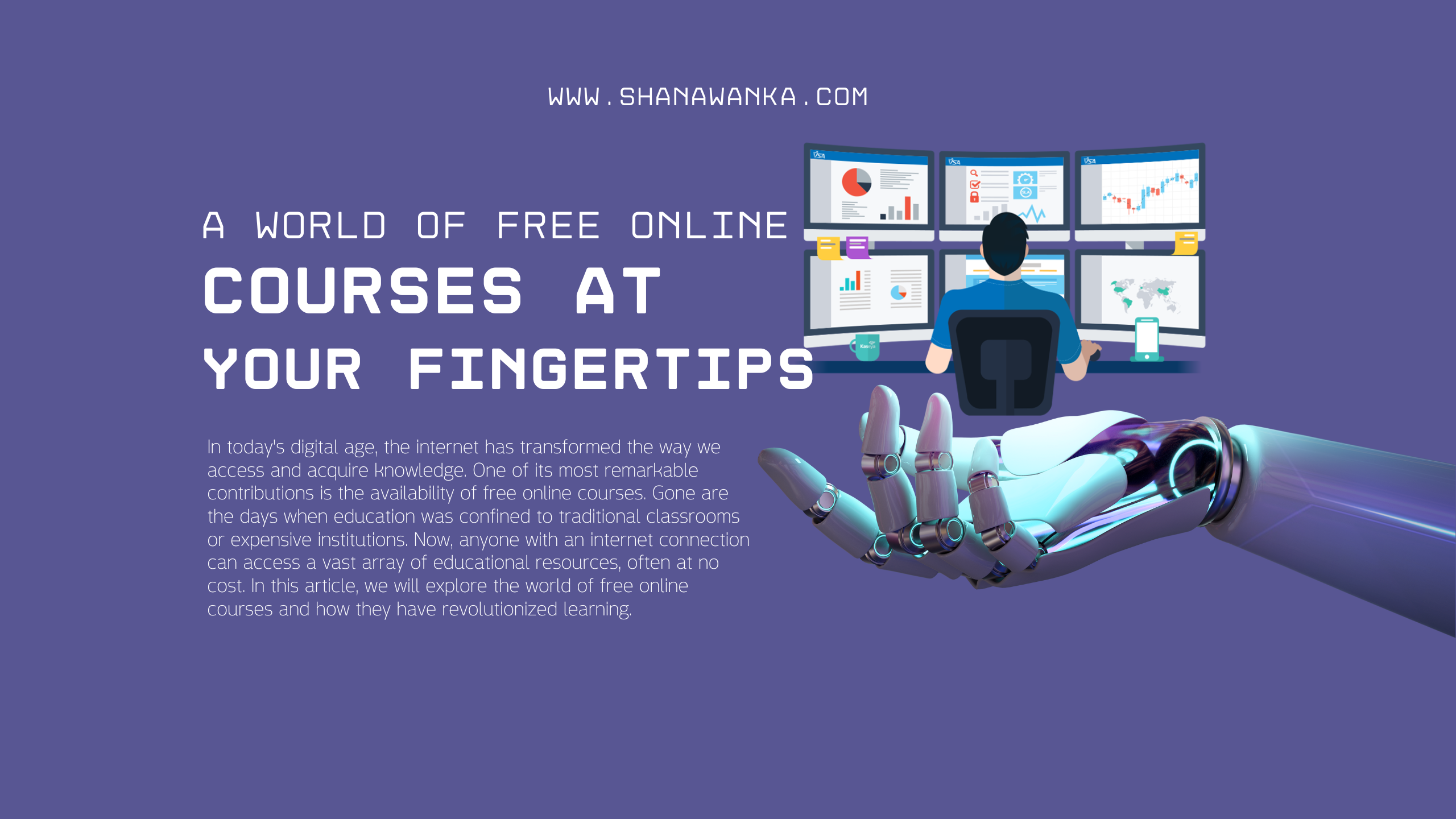In today’s digital age, the internet has transformed the way we access and acquire knowledge. One of its most remarkable contributions is the availability of free online courses. Gone are the days when education was confined to traditional classrooms or expensive institutions. Now, anyone with an internet connection can access a vast array of educational resources, often at no cost. In this article, we will explore the world of free online courses and how they have revolutionized learning.
- The Rise of Massive Open Online Courses (MOOCs): Massive Open Online Courses, commonly known as MOOCs, have been instrumental in making quality education accessible to all. Renowned universities, including Harvard, Stanford, and MIT, have partnered with online platforms such as Coursera, edX, and Udacity to offer courses in various disciplines. These MOOCs provide high-quality video lectures, interactive quizzes, and discussion forums, enabling learners to engage with the material and connect with peers from around the globe.
- Diverse Course Offerings: Free online courses cater to a wide range of interests and educational goals. Whether you want to learn programming, improve your language skills, explore art history, or delve into astrophysics, you can find a course tailored to your needs. Platforms like Khan Academy offer comprehensive subject coverage for K-12 education, while websites like Codecademy specialize in coding and computer science courses. With such diverse offerings, learners can pursue their passions or acquire new skills with ease.
- Flexibility and Self-Paced Learning: One of the key advantages of free online courses is their flexibility. Learners have the freedom to set their own schedules and learn at their own pace. Whether you prefer to dedicate a few hours every day or study during weekends, online courses accommodate your needs. This self-paced learning approach allows individuals to balance their education with work, family commitments, or other responsibilities.
- Certifications and Credentialing: While the majority of free online courses provide certificates of completion, some platforms also offer paid options for verified certificates or even micro-credentials. These credentials can enhance your professional profile and demonstrate your commitment to continuous learning. They can be particularly valuable for career advancement or when transitioning to a new field.
- Global Learning Community: Free online courses foster a vibrant global learning community. Discussion forums, social media groups, and online communities enable learners to connect, share insights, and collaborate on projects. This global network of peers offers a rich learning environment, promoting cross-cultural understanding and the exchange of diverse perspectives.
- Bridging the Educational Gap: Free online courses have the potential to bridge educational gaps and provide opportunities to underserved communities. In regions with limited access to quality education, online courses offer a lifeline, empowering individuals to gain knowledge and skills that were once out of reach. Initiatives like the “Digital Learning for Development” program by UNESCO aim to harness the power of free online courses to promote inclusive and equitable education globally.
Conclusion: Free online courses have ushered in a new era of accessible education. With a world of knowledge just a few clicks away, learners of all backgrounds can expand their horizons, acquire new skills, and pursue their passions. As technology continues to advance, these courses will likely become even more immersive and interactive, further revolutionizing the way we learn. So why wait? Embrace the opportunity and embark on your learning journey today!

Leave a Reply